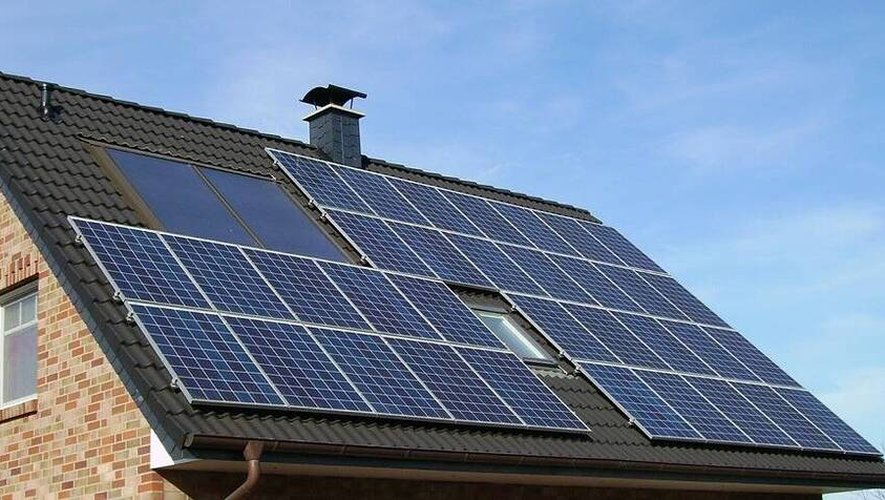The French are jumping into photovoltaic panels covering more and more roofs. Is it really worth the investment to lower your electricity bill? How to navigate in the flood of offers to individuals and help with the purchase? How to avoid scams? Lighting.
Photovoltaic panels are attracting more and more French people. In ten years, the number of houses equipped with it increased from 3,000 to 500,000. The equivalent of half a nuclear power plant. However, this only represents 4% of our households today, while our German neighbors are at 15% and the Dutch at 30%. But the French market really exploded. Installations more than doubled between 2022 and 2023, a record year in which 180,000 households made the move.
Also read:
REVIEWS. Photovoltaic panels: “We sold a dream”, “it’s a big scam…” Disappointed customers tell their failures
Rush to the sun
This rush for the sun can be explained both by the sharp increase in the price of electricity and by the drop in panel prices. “We’ve been watching it for ten years, and it’s accelerated in the last three years. At this rate, they’ll be free in 2030!” calculates François Chollet, vice-president of Toulouse Métropole, responsible for ecology, sustainable development and energy transformation. Especially since all or part of the electricity produced can be resold to EDF thanks to the Purchase Obligations (OA) system, the price of which is set by the Energy Regulatory Commission (CRE). To date, a kilowatt/hour brings about 13 to 16.5 cents, depending on the size of the installation.
Also read:
Photovoltaic development in France: Bruno Le Maire and Roland Lescure make an announcement
However, the ideal is to use as much electricity as possible from your panels by running electrical appliances in sunlight. “Since this energy is not taxed, the payback period of the investment is even shorter,” the elected representative emphasizes. On average, owners of photovoltaic panels will reduce their electricity bill by 30 to 35%. For an initial investment of 8,000 to 15,000 euros, which is profitable after 10 to 15 years.
Also read:
Photovoltaic panels for balconies: operation, price, profitability… What you need to know before installing them
Beware of scams
But as every time the market rises sharply, a whole group of crooks will take advantage of it to cheat buyers, as evidenced by some enlightening testimonies from readers of La Dépêche du Midi. “This phenomenon is at the heart of our concerns. During the public meetings we organize, people are terrified by the idea of being deceived,” confirms François Chollet. He recommends never trusting payphones and going to La Maison de l’Energie. This site is an offshoot of Toulouse Métropole Rénov’, which is itself dependent on France Rénov’, a public home renovation service. “You have to go through them. They’ll give you shopping advice, direct you to approved tradesmen, secure transactions . . .”
Also read:
Solar energy: “China holds practically 80% of the market…” Are we heading for the end of El Dorado?
There are also reliable tools online that allow you to evaluate the solar potential of your roof by entering an address, get a quick quote for photovoltaics, find qualified experts or find out what financial assistance you can apply for from the government. These cannot be combined with an EDF purchase commitment. “At Toulouse Métropole, depending on the resource conditions, we finance up to 25% of the project,” François Chollet gives as an example. RTE, the operator of the electricity transmission network, expects 4 million customers in 2030, i.e. 500,000 new installations per year, in a market estimated at 5 billion euros.

